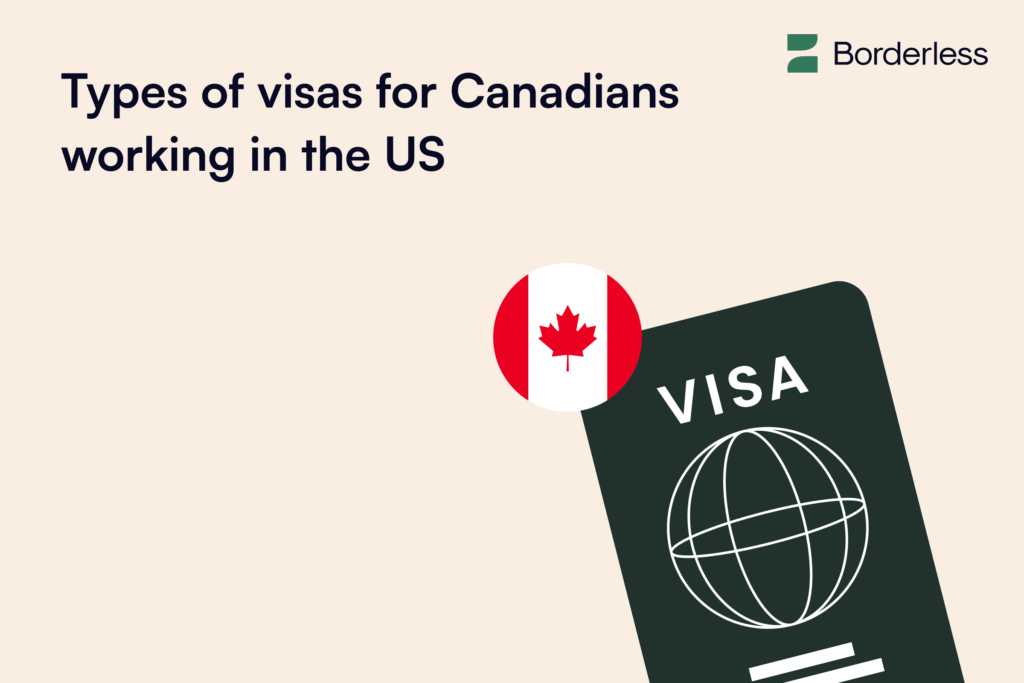Many Canadians dream of working in the United States, drawn by its vibrant economy and diverse job market. However, navigating the legal complexities of living in Canada and working in the US can seem daunting. This article aims to shed light on the various pathways available for Canadians seeking to pursue employment opportunities south of the border. We’ll delve into different visa options, explore cross-border commuting possibilities, and discuss the importance of seeking expert legal counsel.
This comprehensive guide will cover the essential aspects of working in the US from Canada, including eligibility requirements, application procedures, and potential challenges. By understanding these factors, Canadians can make informed decisions about their career aspirations and pursue their goals effectively.
US Work Visas for Canadians
Obtaining a US work visa is often the most common route for Canadians seeking to work in the US. Several visa categories cater to different skill sets and employment situations.
H-1B Visa: Specialty Occupations
The H-1B visa is designed for individuals with specialized knowledge or skills in fields like technology, engineering, or healthcare. Employers must demonstrate a need for your specific expertise and file a petition on your behalf. The H-1B process is highly competitive, with an annual cap on the number of visas issued.
L-1 Visa: Intracompany Transfers
If you’re employed by a multinational company with a branch in the US, you may be eligible for an L-1 visa. This visa allows employees to transfer within their company from a Canadian office to a US location. The L-1 visa typically requires a minimum of one year of employment with the company at the Canadian branch.
TN Visa: NAFTA Professionals
Under the North American Free Trade Agreement (NAFTA), Canadians in certain professions can obtain a TN visa for temporary work in the US. This visa covers occupations listed in specific schedules, including engineers, accountants, and computer programmers. The TN visa process is generally simpler than other work visas, often involving an expedited application at the border.
Cross-Border Commuting

For some Canadians, can I live in Canada and work in the US might involve daily or weekly commutes across the border. This option requires a valid US work permit and adherence to specific regulations regarding residency and tax obligations.
Border Crossing Requirements
Canadians commuting for work must possess a valid passport and any necessary work authorization documents. They may also need to obtain an Enhanced Driver’s License (EDL) or NEXUS card for expedited border crossings.
Tax Implications
Commuting Canadians are subject to both Canadian and US tax laws. It’s crucial to understand the implications of working in one country while residing in another and consult with a tax professional to ensure compliance.
Remote Work Opportunities
The rise of remote work has opened up new possibilities for Canadians seeking employment in the US.
Finding Remote Jobs
Numerous online platforms and job boards specialize in remote positions, allowing Canadians to search for opportunities across various industries.
Legal Considerations
While remote work offers flexibility, it’s essential to ensure compliance with US labor laws and regulations. Employers may have specific requirements regarding contracts, taxes, and data privacy.
Legal Counsel and Immigration Lawyers

Navigating the complexities of living in Canada and working in the US can be challenging. Consulting with an immigration lawyer specializing in US-Canada cross-border work is highly recommended.
Expertise and Guidance
Immigration lawyers possess in-depth knowledge of relevant laws, regulations, and procedures. They can provide personalized advice, assess your eligibility for specific visa options, and guide you through the application process.
Eligibility Requirements
Each US work visa category has its own set of eligibility requirements.
Education and Experience
Many visas require a minimum level of education or professional experience in a specific field.
Job Offer
Most work visas necessitate a valid job offer from a US employer who is willing to sponsor your application.
Conclusion
Working in the US from Canada presents both opportunities and challenges. By understanding the various visa options, exploring cross-border commuting possibilities, and seeking expert legal counsel, Canadians can navigate this complex landscape effectively. Remember to thoroughly research eligibility requirements, prepare comprehensive applications, and stay informed about any updates or changes in immigration policies. With careful planning and due diligence, your dream of working in the US can become a reality.



